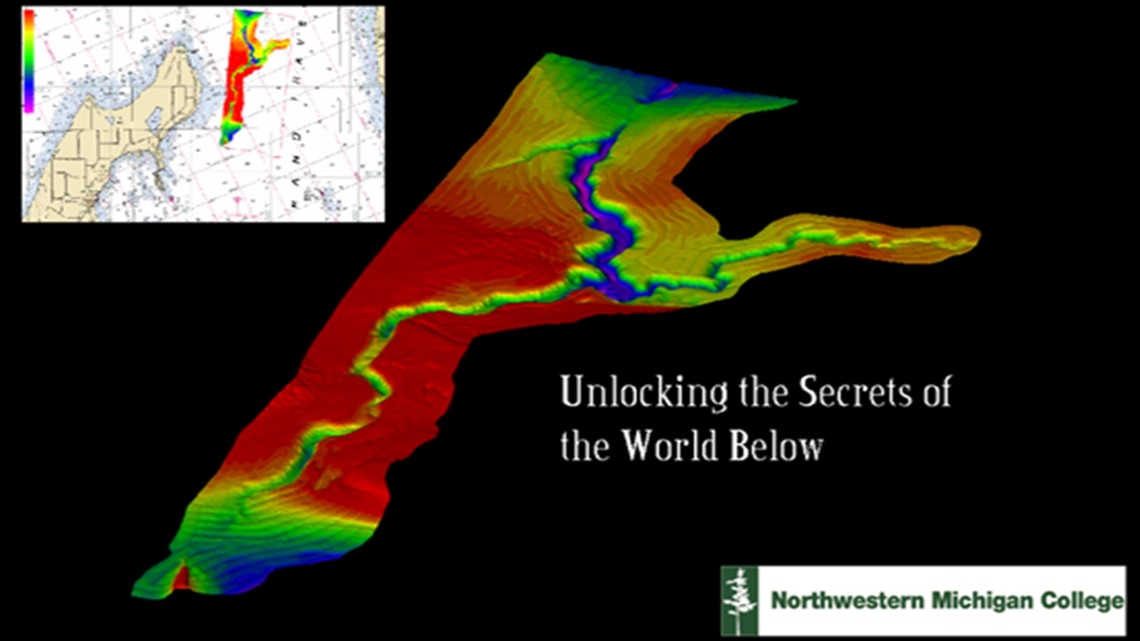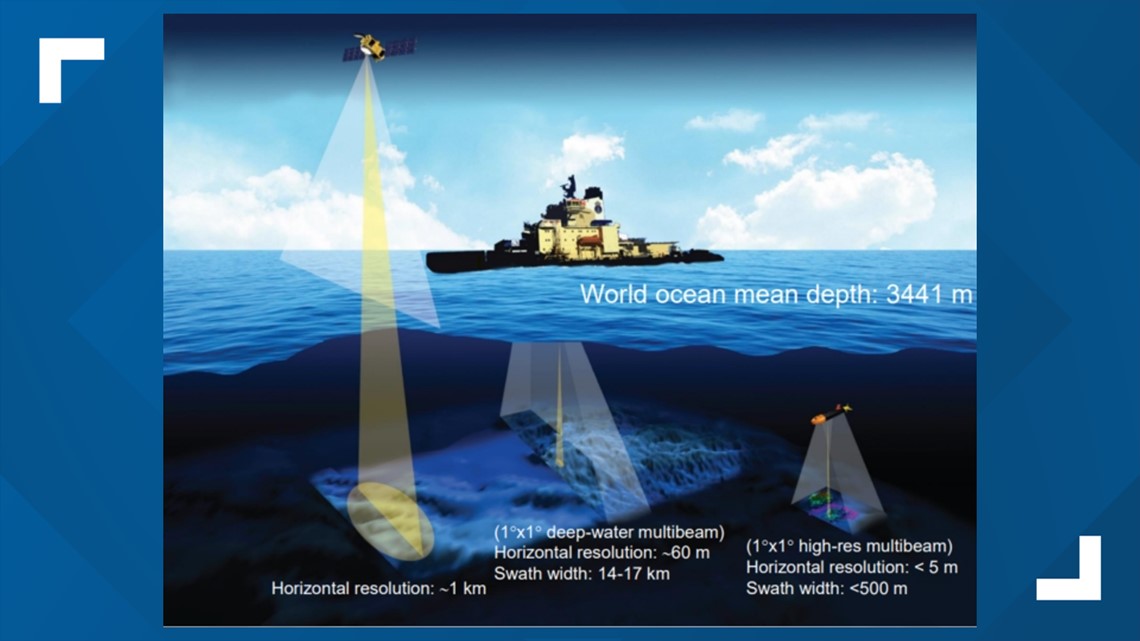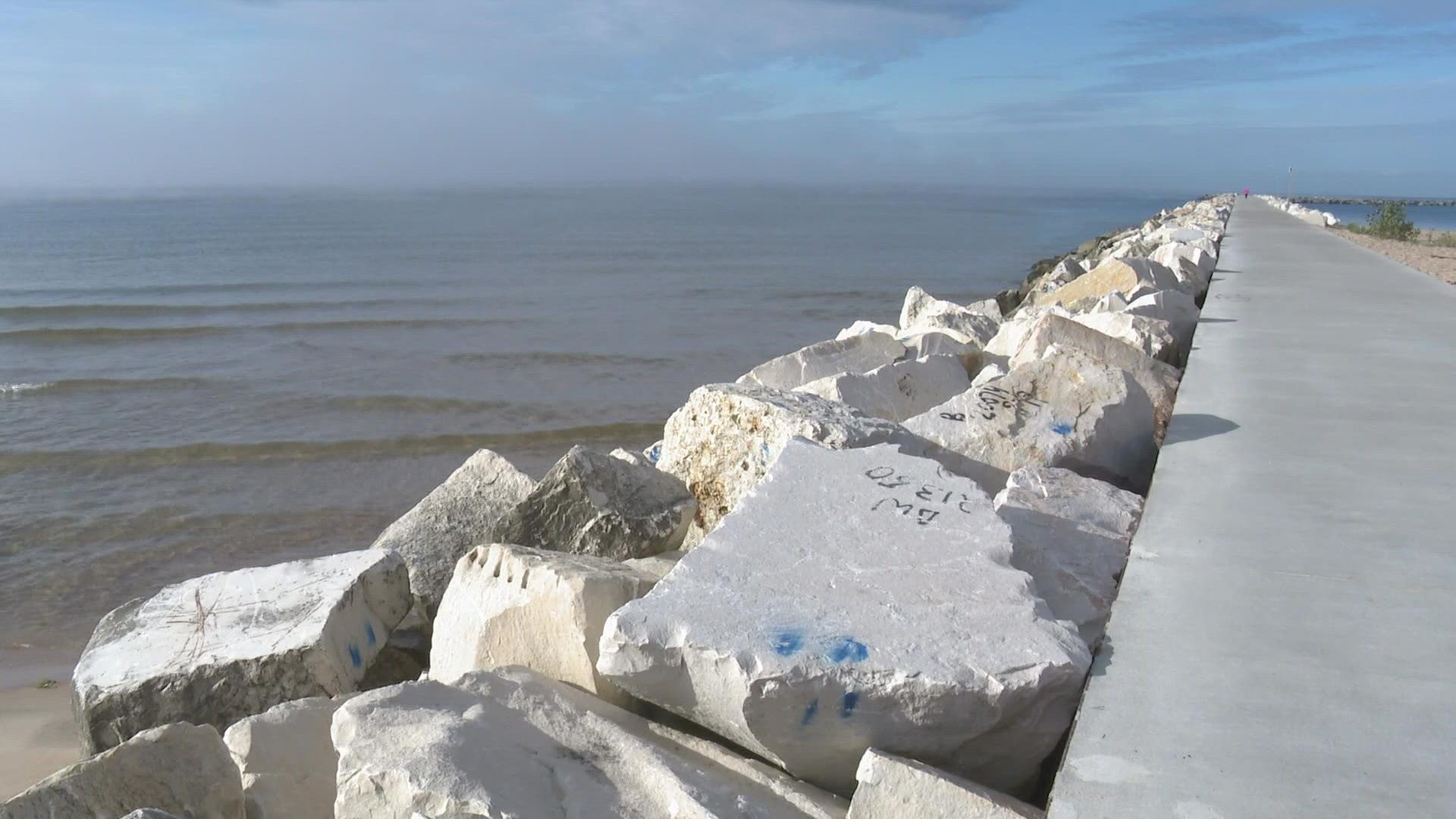LAKE, MICHIGAN, Mich. — In an effort to highlight the power of water and what it means to us as a species and a nation, ABC News is dedicating Thursday, April 20, to special coverage around this very important topic.
All across the nation, ABC and their affiliates are taking time today to talk about water issues, shortages, impacts from climate change and water education.
When the request was made to us here at 13 ON YOUR SIDE, we knew how we wanted to contribute, and that was by talking about our biggest natural resource, the Great Lakes!
With something so large and so nearby, you may think we already know all there is to know about this iconic body of water. However, we actually know shockingly little about how the lake works and how those processes impact our regional populations.
Hans Van Sumeren, the Director of the Great Lakes Water Studies Institute at Northwestern Michigan College, revealed to us that almost all of the Great Lakes is still unmapped using modern technology.


Hans said, "We know very little about this world's largest freshwater resource. In fact, the Great Lakes have only been mapped around 10% using modern technology. When I mean modern, I mean the last 75 years."
He continued, "So we're vastly missing enormous amounts of information about this great resource that we need to identify, so that we can better protect, manage, and sustain it for future generations."
This information void may be troubling for researchers, but it also has real world impacts to residents around the Great Lakes as well. Without a better understanding of the lakes, we cannot accurately model how to use and manage the resources they provide.


The project looking to change our understanding of the lakes is called Lakebed 2030. Hans took the time to explain some of the things they are looking to better understand when this project is completed.
He added, "We're trying to create new models for predicting circulation events within the Great Lakes, how that impacts weather patterns, wave events, and things like that. We're interested in how circulation and changes in the water column, the chemistry, and the biology."
Continuing, "We don't know how to do that very well, if we don't have a very accurate understanding of, not only just the depth, but [of what] does the lake look like in terms of gradients of change? What are the sediments made of? Where are certain structural components of the substrate of the Great Lakes, where do they change?"
Elaborating on the real world impacts Hans said, "All of these allow us to make better decision making processes were, number one, we can spend money appropriately, and number two, we can focus on the biggest stressors that are out there. So we can focus towards the biggest areas of need, or the biggest areas where we get the most return and prioritize areas within the lake."
With water expected to continue to be a major societal stressor in the decades ahead, better understanding the resources that we do have can go a long way to improving the quality of life for everyone who is dependent on them.
Lakebed 2030 and The Great Lakes Water Studies Institute aim to have a major roll in that eventual understanding.
-- Meteorologist Michael Behrens
Follow me on social media! Facebook Meteorologist Michael Behrens, Twitter @MikeBehrensWX, and Instagram @MikeBehrensWX.
Email me at: MBehrens@13OnYourSide.com
Have a 30-second video or still photo to share? We'd love to share it with everyone! Email your image to Weather@13OnYourSide.com or post it to our 13OnYourSide Facebook Page.
►Make it easy to keep up to date with more stories like this. Download the 13 ON YOUR SIDE app now.
Have a news tip? Email news@13onyourside.com, visit our Facebook page or Twitter. Subscribe to our YouTube channel.

